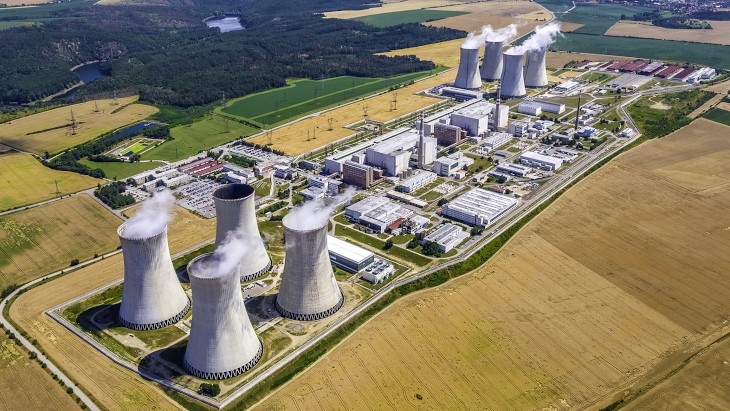The submission of bids marks a major milestone in the construction project. ČEZ began discussions about a new reactor at Dukovany in 2017 and completed a security qualification of the vendors in March this year.
Tomáš Pleskač, director of ČEZ's New Energy Division said: "Initial bids are the basis for clarifying technical and commercial parameters." Negotiations will follow and Pleskač expects revised final bids to be made in September 2023. A selection process and the necessary approval by the Czech government would run into 2024. A ČEZ-owned project company called Elektrárna Dukovany II (or EDU II) will handle the selection and subsequent construction.
USA-based Westinghouse proposed its AP1000, while Korea Hydro and Nuclear Power (KHNP) put forward the APR-1400 design. EDF of France has proposed its EPR1200, a smaller version of its EPR design. All three are pressurised water reactors. Across Europe the larger EPR design of about 1650 MWe is under construction in France and the UK and being commissioned in Finland, while the AP1000 and APR-1400 were both recently selected for construction in Poland.
"The most important advantages of nuclear energy include energy security - independence from third countries, low operating costs, i.e. stable price in the long run, reliability of power supply and operational safety of nuclear power plants," said ČEZ, noting that public support for nuclear in the Czech Republic has reached 72% "mainly due to the current energy crisis".
A legal framework for funding the construction, known as Lex Dukovany, brought in in September 2021 will allow ČEZ as a state-owned company to purchase electricity from new nuclear plants at a fixed rate for at least 30 years, with the possibility of extension. The power will be resold on the wholesale market and any profit or loss translated into an adjustment to power bills, although the government said it will set an upper limit on any extra cost.
"The environmental aspects [of nuclear energy] are crucial," said ČEZ, "with emission-free electricity making a major contribution to the fight against global warming." The Czech Republic uses nuclear power for 34% of its electricity, generating this from four reactors at Dukovany and two at Temelin. As well as this project to expand Dukovany, it is also looking at building new units at Temelin.





_55401.png)
_23009.jpg)

_33392.jpg)






